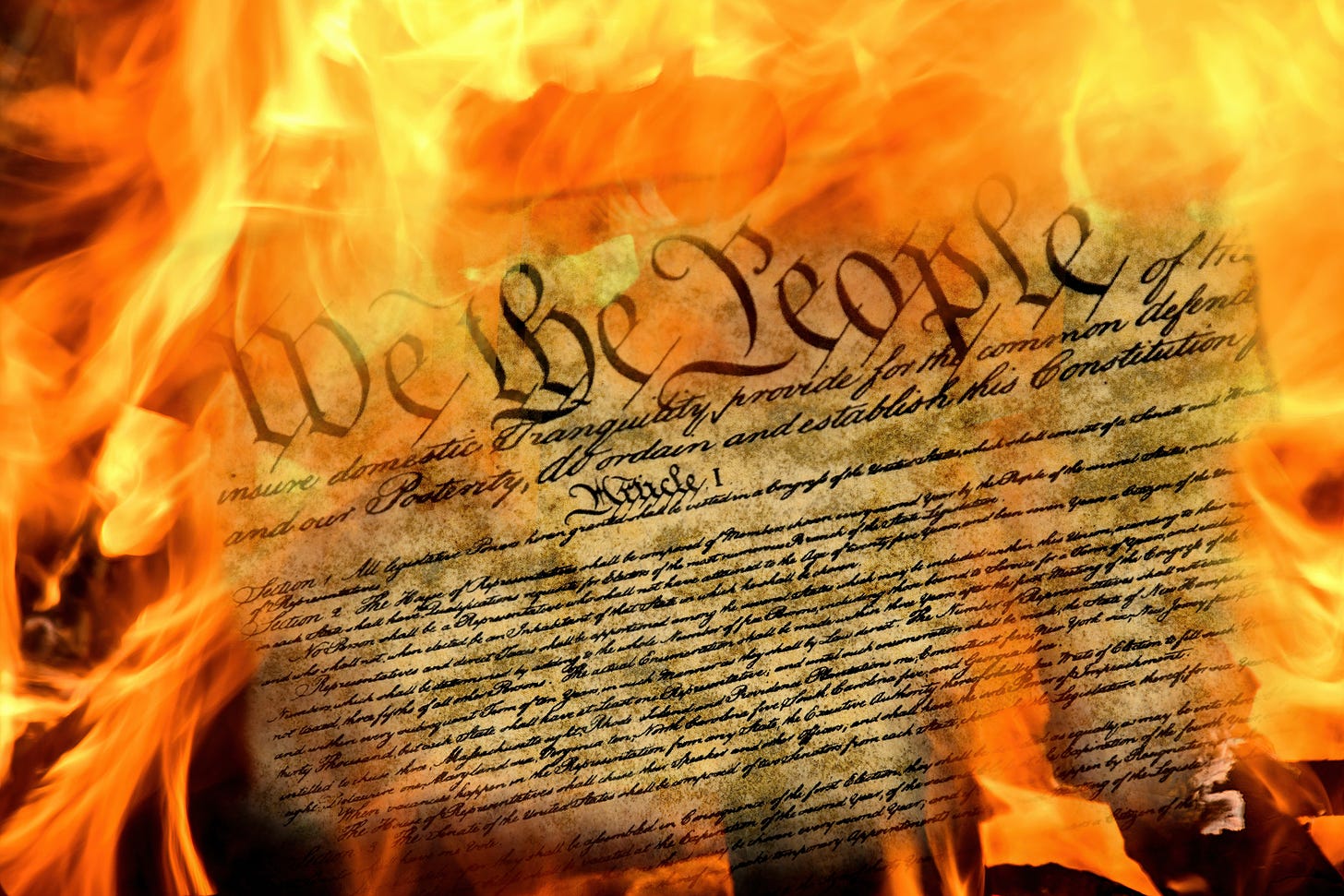Putting the Common Man in His Place: Part 2
A high-level overview of individualism's contention that human beings are inherently and equally valuable
God gives man inherent and equal value
Individualism is an ideology based on man’s God-given value
Individualism delivers protection by suppressing vice, and prosperity by celebrating virtue
Human nature will not allow for a perfect society, but individualism makes the best of this bad situation
In Part 1 of this series, I discussed the clash of worldviews that is driving us toward a third world war. In short: the world is split between those who believe that human beings are inherently and equally valuable, and those who do not.
In this installment, I’ll discuss the first of those beliefs.
God made you valuable
You are valuable. Not because you’re a spectacular person (though, as a reader of mine, you obviously are) but because you were made in the image of God and because He loves you. So even before you’d taken your first step or said your first word or had anything whatsoever to offer the world, you were already valuable.
Some people aren’t going to treat you that way, of course, but your inherent value isn’t determined by people, it’s determined by God. It isn’t up for a vote. And because God does not play favorites1, your value is no higher or lower than anyone else’s, regardless of ability, means, or station.
Individualism values people
This belief about human value is known as individualism because it focuses on the intrinsic and equal value of individuals, each of whom it considers of infinitely greater worth than any human institution or group identity.
God’s love for man provides the moral foundation for this belief, and that moral foundation dictates the ethics that fashion government and society. Human rights, representative government, and equality before the law are all logical conclusions of individualism — a line of reasoning that ultimately led Western Civilization to exchange monarchy’s divine right of kings for democracy’s reign of the common man.
Suppressing vice; celebrating virtue
But while individualism has a high regard for human value, it is nevertheless wary of human behavior. This is because everyone comes prepackaged not just with virtues but vices; and that means that while some aspects of human nature should be celebrated, others must be suppressed.
Protecting human value means rejecting anything that denies or diminishes it — be that a physical crime like murder or a dehumanizing idea like racism. At a societal level, this means preventing those with power from preying on those without it. This is especially necessary in government because its role as the supreme human authority makes it the favored occupation of crooks and tyrants.
Respect for human value does not only limit the behavior of those in authority, however; it also has implications for how we relate to one another on a personal level. It means that my opponent — that guy I really don’t like — has the exact same rights that I do. If I can speak, so can he. If I can pursue political office, so can he. If I am punished for a crime, his punishment for the same crime should be no worse. He is no more or less valuable than I am, and therefore must be afforded the same degree of privilege and protection.
In short, the law gives neither of us an advantage regardless of our individual popularity or power. This is as much a safeguard for me as it is for my opponent, though, because from his perspective, I am the opponent.
As an individualist, I believe that you and I are equally valuable, so I’m going to treat you the same way that I want to be treated. I’m going to respect your right to hold and express opinions I disagree with because I want my rights to be respected by you. I’m not going to commit crimes against you because I don’t want to be victimized, either. My acknowledgment of your equal value leads me to suppress my sinister impulses.
A society of people committed to such self-restraint is one in which authoritarianism cannot gain a foothold because self-controlled people do not need or desire to be controlled by someone else. The author of Federalist 51 took this to its logical conclusion, saying:
If men were angels, no government would be necessary.
Making the best of a bad situation
But men are not angels, and this rosy picture is not reality. The society laid out above is the ideal — how everything would operate if the world were full of good people. But, as previously mentioned, it isn’t. This isn’t the fault of individualism or the principles upon which it is based, it’s the fault of our corrupt nature.
If we were perfect, but had somehow been handed a corrupt political system, our perfection would enable us to fix it. But even a perfect system can never fix corrupt people, and we are very corrupt indeed. Our moral flaws make a perfect society impossible, no matter how well it’s designed. Utopia simply cannot exist when all the utopians are naturally dystopic.
The very best we can do, given our moral degeneracy, is to design a system that acknowledges moral absolutes, and rewards good behavior while punishing bad. Western Civilization is that system, and individualism is its ideology.
But individualism is on the decline. The protections and prosperity it historically provided to those in the West are now evaporating because our assessment of human value has been turned on its head.
In Part 3, I will discuss the ascendent and competing view: that human beings are not valuable, or at least not equally so.
God shows no partiality



